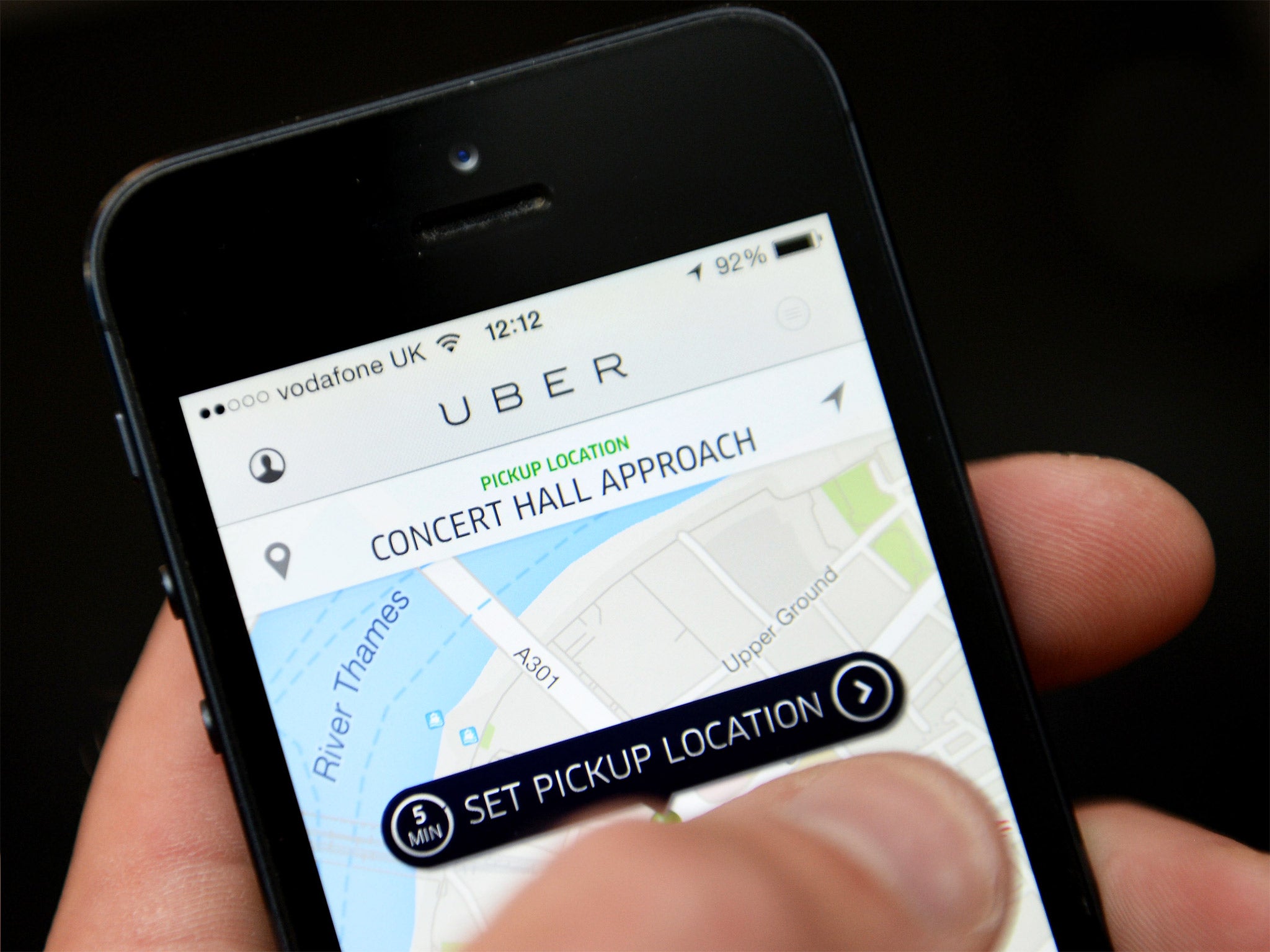Why Uber taxis will be more expensive during Tube strike
The app-based hailing service operates a system of 'surge pricing', making cabs more expensive at busy times

Your support helps us to tell the story
From reproductive rights to climate change to Big Tech, The Independent is on the ground when the story is developing. Whether it's investigating the financials of Elon Musk's pro-Trump PAC or producing our latest documentary, 'The A Word', which shines a light on the American women fighting for reproductive rights, we know how important it is to parse out the facts from the messaging.
At such a critical moment in US history, we need reporters on the ground. Your donation allows us to keep sending journalists to speak to both sides of the story.
The Independent is trusted by Americans across the entire political spectrum. And unlike many other quality news outlets, we choose not to lock Americans out of our reporting and analysis with paywalls. We believe quality journalism should be available to everyone, paid for by those who can afford it.
Your support makes all the difference.Uber, the the app-based taxi hailing service, has become wildly popular - with consumers if not black cab drivers - since launching in London in July 2012.
It's famously cheap. But this week's Tube strike - the whole network is set to be out of action for all of Thursday - might mean Uber cabs are most expensive than usual because of something called 'surge pricing'.
Under this system, fares cost 1.5 to 2.5 times the usual price at busy times, when demand is high.
Uber says this is to encourage more of its thousands of drivers on to the road. Supply and demand - when demand is outstripping supply, prices goes up.
"Prices increase to encourage more drivers to become available", as Uber says on its website. The company insists this is to "ensure reliability", that is, to make sure a car turns up in good time even at busy times.
During a Tube strike last year, Uber offered a 50 per cent discount for people sharing cars. The company reported a four-fold increase in demand compared to a normal weekday.
The company said last year it expected to have 42,000 drivers in the capital by March 2016, and that it had 500,000 users in London.
Join our commenting forum
Join thought-provoking conversations, follow other Independent readers and see their replies
0Comments